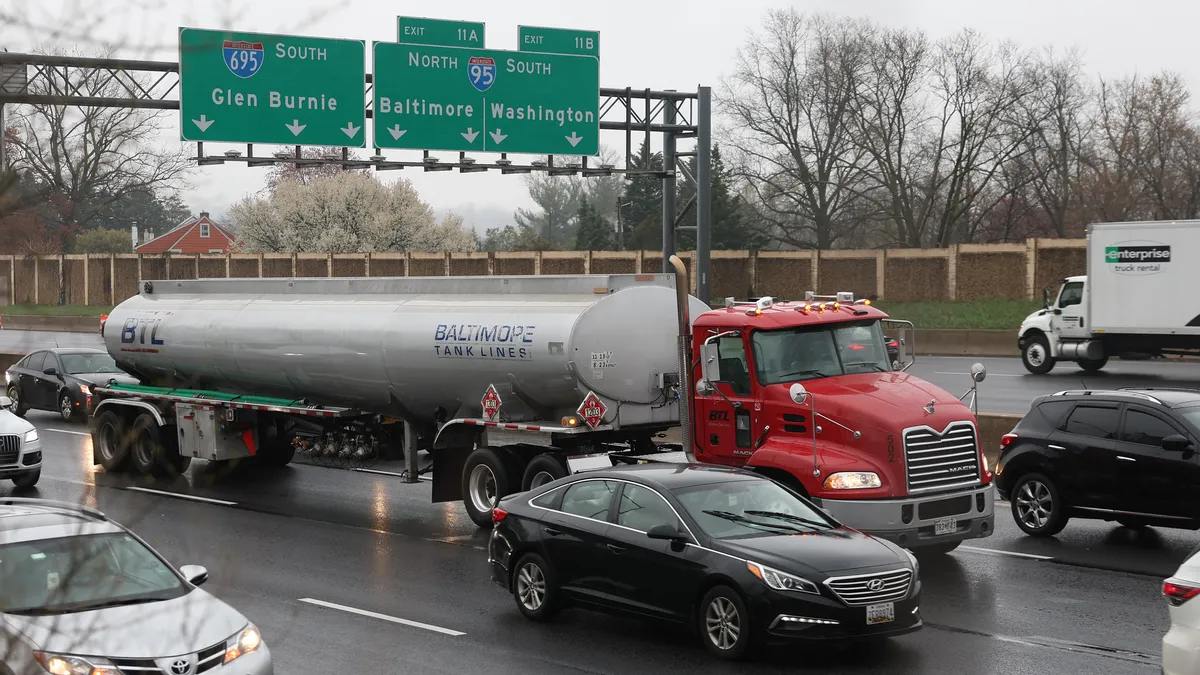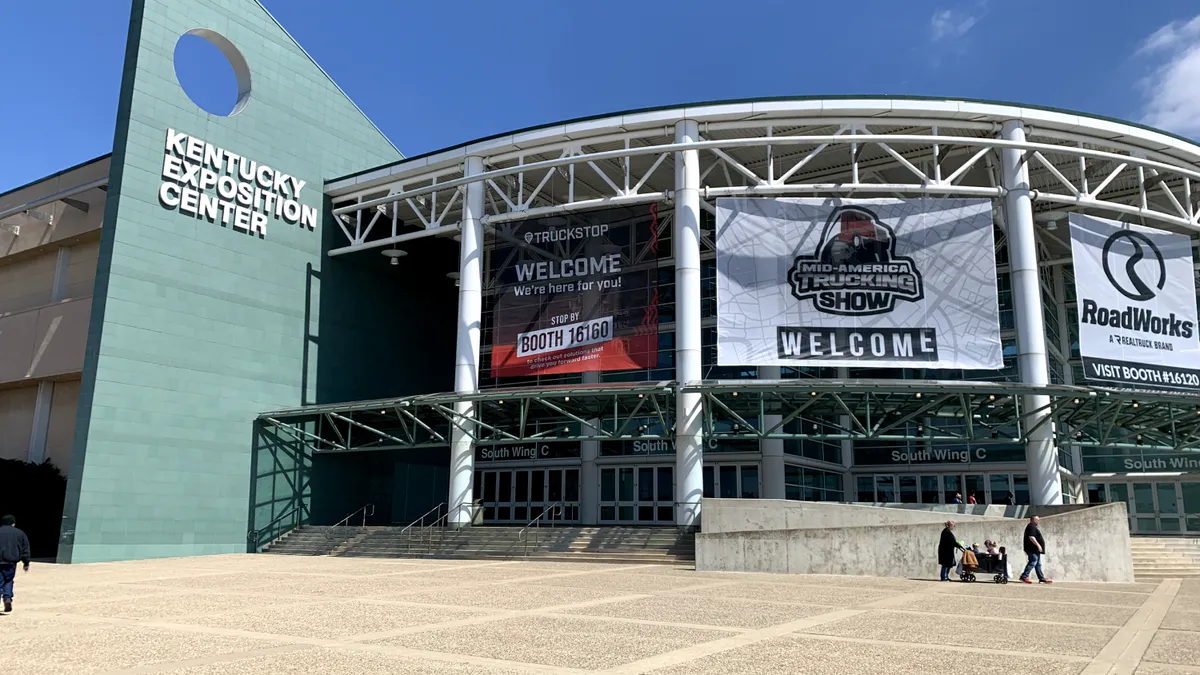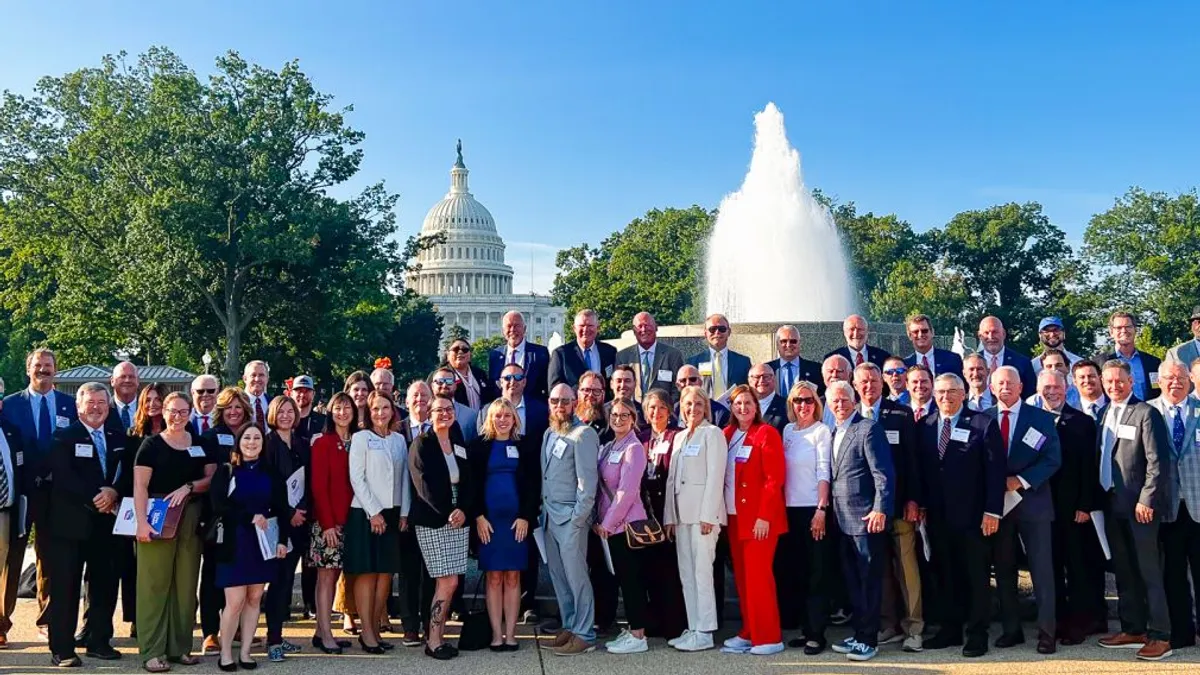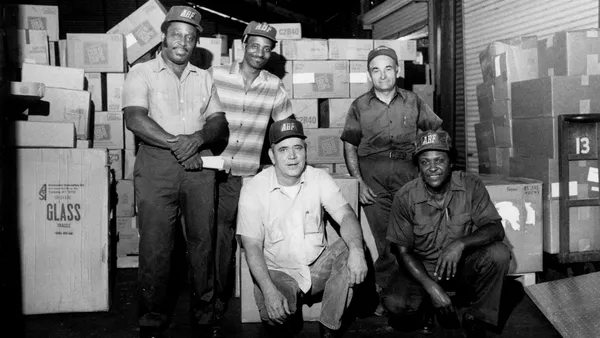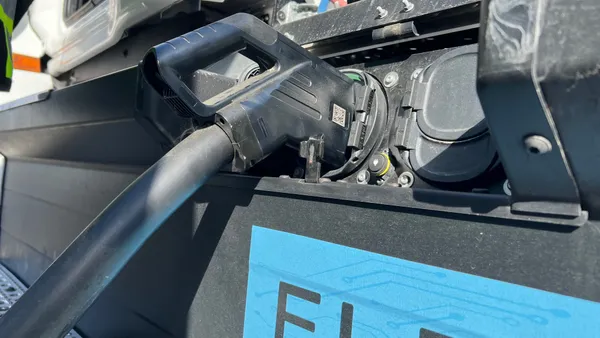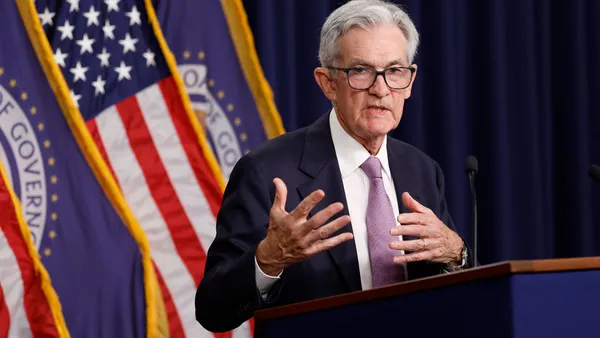UPDATE: April 11, 2024: Virginia and Pennsylvania have followed Maryland in waiving International Registration Plan and International Fuel Tax Association requirements for drivers hauling to or from a seaport during the state of emergency, the Maryland Motor Truck Association announced. Virginia will issue free, 30-day permits for container hauling until the end of the emergency.
Dive Brief:
- Maryland has waived International Fuel Tax Association requirements for port truckers, and the Federal Motor Carrier Safety Administration has extended its emergency declaration for drivers providing direct assistance to the Francis Scott Key Bridge collapse response.
- IFTA rules will be waived through May 31 for motor carriers hauling freight to or from a seaport, Maryland Comptroller Brooke Lierman wrote in a letter to IFTA Executive Director and CEO Carmen Martorana. The state will also extend the April 30 quarterly IFTA tax return deadline until June 30, Lierman said.
- The FMCSA declaration relaxes maximum driving time and ELD regulations for drivers directly involved in supporting the emergency relief efforts, extending an 11-hour driving time restriction by two additional hours. The relief lasts until May 9 or the end of the emergency.
Dive Insight:
The moves by the state and federal government took care of half of the six key needs outlined by the Maryland Motor Truck Association in a letter to the state transportation secretary following the bridge collapse.
Driver hours of service extensions, ELD exceptions and IFTA waivers were three of the association’s top requests.
The others included International Registration Plan waivers, limited route openings for fuel haulers, and financial assistance for local businesses.
Alongside $60 million in emergency federal aid, Maryland Gov. Wes Moore signed an executive order to provide $60 million in state relief to workers and businesses affected by the bridge collapse, the governor said on Friday.
Maryland Motor Truck President and CEO Louis Campion pointed out in his letter that the Small Business Administration aided those affected by the Interstate 95 overpass collapse in Philadelphia, and he urged policymakers to explore “all available resources that would include trucking.”
“While some may not view a freight shift to another port or another mode of transportation as a disaster, for the local intermodal trucking industry it is one,” Campion wrote.



